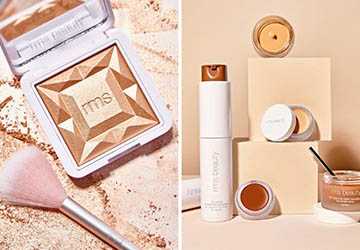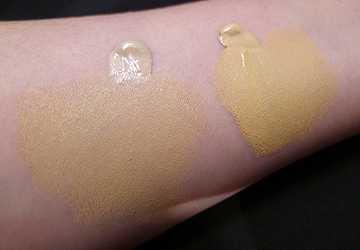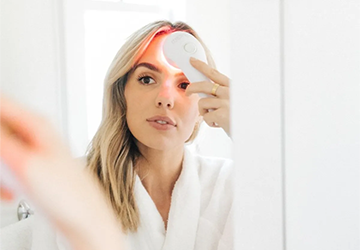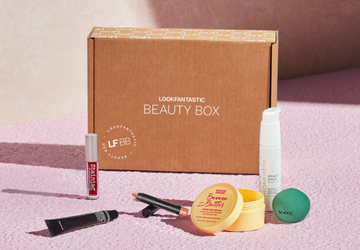The Benefits Of Organic Makeup Products
The global demand for organic beauty products is rapidly increasing as more consumers become aware of the potential toxicity in conventional cosmetics. Organic makeup brands use natural, organically sourced ingredients free from harsh chemicals, providing numerous advantages over traditional makeup products.
Organic beauty products, formulated using at least a majority of natural ingredients from organic farming, offer a safe and environmentally friendly alternative that nourishes skin while reducing exposure to potentially harmful substances in non-organic cosmetics.

Understanding the Need for Organic Makeup
The growing need for organic makeup stems from the potential risks associated with conventional makeup products and the increasing consumer demand for natural alternatives.
Potential Risks of Conventional Makeup
Conventional makeup products often contain synthetic chemicals and additives such as parabens, phthalates, and formaldehyde. These ingredients have been linked to hormone disruption, cancer, and other health issues, posing significant risks to both our health and the environment.
Growing Consumer Demand for Natural Products
With growing awareness of the potential risks associated with conventional makeup, demand for natural and organic alternatives has increased. People seek makeup and skincare products free from harsh chemicals and made with sustainable, plant-based ingredients.
3 Key Benefits of Organic Makeup Products
Organic makeup products offer numerous advantages over conventional cosmetics. Let’s discuss a few:
No Toxic Chemicals
Your skin is the biggest organ in your body, and it needs care just like the rest of you. You wouldn't eat harmful substances, so why put them on your skin?
Your skin absorbs much of what it touches. If your beauty products contain harmful chemicals like phthalates or parabens, your skin takes them in, letting them enter your bloodstream. This can cause allergic reactions, irritations, rashes, and other harmful effects. A study found that one in five cosmetic products contains chemicals linked to cancer and reproductive toxicity.
You won't have to worry about harsh chemicals with organic beauty products. Crafted from natural and safe ingredients, they provide gentle, effective care, allowing your skin and body to flourish without the risks associated with synthetic additives.
Cruelty-Free Products
The cosmetics industry has been frequently criticized for using animal testing to ensure human product safety. In contrast, organic products do not need such testing, as they are made from natural ingredients that are inherently safe and harmless. For instance, organic brands like Lush and The Body Shop are committed to cruelty-free practices, ensuring their products are effective and ethically produced.
When you buy organic skincare products, you purchase cruelty-free items, supporting the industry's move to eliminate animal testing. By choosing organic, you contribute to a more humane and sustainable future, promoting the well-being of animals and the environment.
A Potent, Highly Concentrated Formula
When examining non-organic beauty products, drying agents or fillers like mineral oil or petroleum are likely to be prominently listed, while the desired active ingredients are much lower down.
There is no need for fillers or drying agents in organic beauty products, which results in a higher concentration of beneficial ingredients per bottle. Packed with vitamins, minerals, and other active components, organic products offer a more potent and effective beauty solution.
While some non-organic beauty products may claim to use natural ingredients, they only need a small amount to legally market them, shortchanging you at the register. By choosing organic, you ensure that your skin receives the full benefits of high-quality ingredients without harmful fillers.
Choosing Authentic Organic Makeup Brands
When choosing authentic organic makeup brands, it is crucial to look for reputable certifications and labelling standards that guarantee the products meet specific criteria for organic and natural ingredients, sustainable sourcing, and ethical practices.
Certification and Labeling Standards
Certifications like COSMOS, NaTrue, and BDIH guide natural and organic cosmetics and regulate synthetic ingredients, GMOs, and sustainable practices. The USDA Organic certification categorizes products as "100% Organic," "Organic," or "Made with Organic Ingredients" based on their organic content. Labels like Ecocert, Cosmebio, and Nature et Progrès also verify organic and natural claims.
Sustainable Sourcing and Ethical Practices
Ethical organic makeup brands prioritize fair trade practices, guaranteeing fair treatment and living wages for workers. They also consider environmental concerns such as deforestation and carbon footprint by choosing sustainable sourcing and production methods. Transparency regarding the supply chain is essential for brands, which should validate organic material sourcing through supplier contracts and rigorous quality control measures.
Ingredient Transparency
Consumers demand transparency, seeking products with minimal, non-toxic, and naturally-derived ingredients. Brands increasingly publish complete ingredient lists, enabling consumers to make informed choices and avoid potential irritants or allergens. Transparency also extends to ethical sourcing, with consumers wanting to know where ingredients are derived from and if they are ethically and sustainably obtained.

Addressing Common Misconceptions
While organic cosmetics are becoming increasingly popular, some consumers often need clarification about their effectiveness, longevity, and cost. Organic makeup products are formulated with natural, plant-based ingredients that are scientifically proven to be effective and well-studied.
Effectiveness Compared to Conventional Makeup
Organic makeup is as effective as conventional cosmetics, providing the same coverage, pigmentation, and long-lasting wear. The natural ingredients used in organic formulas are carefully selected to nourish and benefit the skin without compromising performance.
Longevity and Shelf Life of Organic Products
The shelf life of organic products is usually a concern, as natural ingredients tend to have shorter expiration dates. However, experts suggest that expiration dates are arbitrary and can be extended with proper preservation techniques. The efficacy of preservatives plays a crucial role in ensuring the longevity and safety of organic cosmetics during use.
Cost Considerations for Organic Makeup
While organic makeup products may come with a higher price tag than conventional alternatives, this is often attributed to the increased expenses associated with sourcing organic ingredients, using sustainable packaging, and employing small-batch production methods. Despite the cost, numerous consumers consider investing in organic makeup as a valuable commitment to personal well-being and environmental preservation, reflecting their core values.
Final Words
While embracing organic makeup represents a significant step toward a healthier and more conscious beauty routine, it is crucial to recognize that this shift extends beyond personal preferences.
The organic makeup industry's commitment to cruelty-free practices, ethical sourcing, and sustainable production methods contributes to a broader movement toward environmental stewardship and social responsibility. Supporting organic brands allows consumers to play an active role in shaping a sustainable future while reaping the rewards of natural, nourishing cosmetics.







